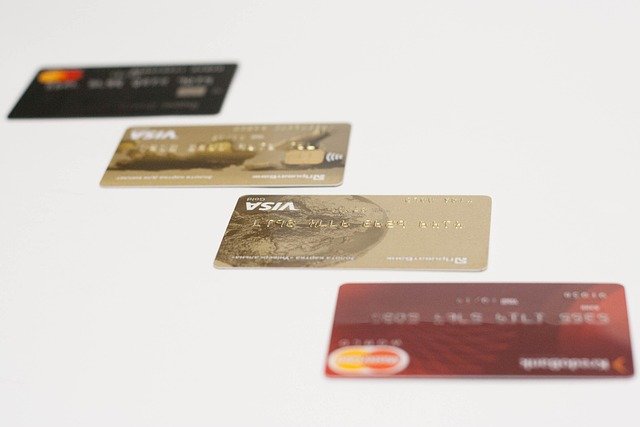The 2025 Guide to Legally Repairing Your Credit Score in the United States
A low credit score can feel like a financial prison, blocking you from getting a car, a home, or even a good job. However, federal law (the FCRA) gives you the right to challenge inaccurate or unfair items on your credit report. This guide explains how the credit repair process works, what your rights are, and the steps you can take to legally remove negative items and rebuild your financial future

How to Legally Remove Negative Items From Your Credit Report in 2025
The Fair Credit Reporting Act (FCRA) gives you the right to dispute inaccurate or unverifiable information on your credit report. In 2025, this process remains one of the most effective ways to legally repair your credit.
Start by obtaining free copies of your credit reports from all three major bureaus—Equifax, Experian, and TransUnion—through AnnualCreditReport.com. Review these reports carefully, looking for errors such as accounts that aren’t yours, incorrect payment statuses, outdated negative information, or duplicate accounts.
When you identify errors, submit a formal dispute letter to the credit bureau reporting the information. Include supporting documentation and be specific about what information is incorrect and why. Credit bureaus have 30 days to investigate your claim and must remove information they cannot verify.
The #1 Mistake People with Bad Credit Make (And How to Avoid It)
The biggest mistake people make when attempting to repair their credit is paying for the removal of accurate negative information. Known as “pay for delete,” this approach involves asking creditors to remove legitimate negative items in exchange for payment. Not only is this practice against most creditors’ policies with the credit bureaus, but it also may violate FCRA guidelines.
Instead, focus on what you can legally control. First, ensure you’re making timely payments on all current accounts. Payment history accounts for 35% of your FICO score—the most heavily weighted factor. Second, work on reducing your credit utilization ratio (the amount of available credit you’re using) to below 30%, ideally below 10%. Finally, avoid opening multiple new accounts in a short period, as this can temporarily lower your score.
What is a “Good” FICO Score and How Quickly Can You Achieve It?
FICO scores range from 300-850, with higher scores indicating lower credit risk. In 2025, the general ranges remain:
-
Excellent: 800+
-
Very Good: 740-799
-
Good: 670-739
-
Fair: 580-669
-
Poor: Below 580
How quickly you can improve your score depends on your starting point and the nature of the negative items on your report. Minor negative factors like high credit utilization can be addressed within 1-3 months. More significant issues like late payments or collections may take 12-24 months to show meaningful improvement.
The most efficient approach combines several strategies: disputing inaccuracies, paying down debt, establishing positive payment history with secured credit cards if necessary, and becoming an authorized user on a family member’s well-established account. Consistency is key—improvement happens gradually as you demonstrate responsible credit behavior over time.
Are Credit Repair Companies Worth It? A Review of the Top Services
While you can legally repair your credit yourself, some people prefer professional assistance. Credit repair companies can handle the dispute process, communicate with creditors, and provide guidance—but they cannot legally do anything you couldn’t do yourself.
When evaluating credit repair services in 2025, consider their approach, pricing structure, and customer reviews. Legitimate companies should explain your legal rights, provide a written contract detailing their services, and never guarantee specific score improvements.
| Credit Repair Service | Monthly Fee | Features | Average Time to Results |
|---|---|---|---|
| Lexington Law | $89.95-$129.95 | Credit bureau disputes, creditor interventions, identity theft protection | 3-6 months |
| Credit Saint | $79.99-$119.99 | Aggressive dispute options, free consultation, 90-day money-back guarantee | 3-6 months |
| Sky Blue Credit | $79 | Flat-rate pricing, couples discount, 90-day guarantee | 3-6 months |
| The Credit People | $79-$99 | Unlimited disputes, comprehensive credit report analysis | 3-6 months |
| CreditRepair.com | $69.95-$119.95 | Personal online dashboard, mobile app access, credit monitoring | 3-6 months |
Prices, rates, or cost estimates mentioned in this article are based on the latest available information but may change over time. Independent research is advised before making financial decisions.
Remember that while these companies can help navigate the process, they cannot remove accurate negative information or create a new credit identity for you—any company promising these services is likely engaging in illegal practices.
Understanding Your Rights: How the FCRA Can Help You Fix Your Credit
The Fair Credit Reporting Act (FCRA) is your most powerful tool for credit repair in 2025. This federal law regulates how credit reporting agencies collect, access, use, and share your information, while giving you specific rights to ensure the accuracy of your reports.
Under the FCRA, you have the right to:
-
Receive a free copy of your credit report from each bureau once every 12 months
-
Dispute incomplete or inaccurate information
-
Have outdated negative information removed (most negative items must be removed after 7 years; bankruptcies after 10 years)
-
Seek damages from violators
-
Request credit bureaus to investigate items you dispute within 30 days
If a credit bureau fails to respond to your dispute within the required timeframe or cannot verify the information, they must remove the disputed item. Additionally, if a furnisher (such as a creditor) discovers they’ve provided inaccurate information, they must notify all credit bureaus to correct your reports.
Understanding these rights empowers you to take control of your credit repair journey and ensures you’re following legitimate, legal methods to improve your financial standing.
Credit repair is not an overnight process, but with persistence, knowledge of your rights, and proper financial habits, you can significantly improve your credit score in 2025 and beyond. Focus on addressing inaccuracies, building positive credit history, and maintaining good financial habits for long-term success.




